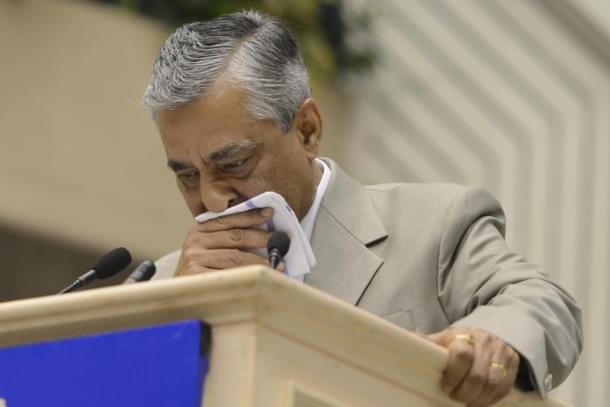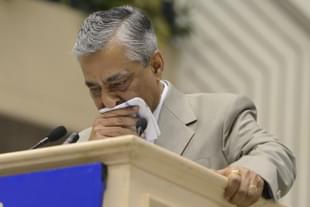Insta
No, Justice Thakur, Shortage Of Judges Is Not The Reason For Pending Cases
Swarajya Staff
Oct 11, 2016, 10:05 AM | Updated 10:05 AM IST
Save & read from anywhere!
Bookmark stories for easy access on any device or the Swarajya app.


Contrary to the popular perception that the shortage of judges in Indian courts is solely responsible for a large number of pending cases, a report cited by the law minister states that a verity of reasons including lack of efficient management systems and frequent adjournments contribute to the increasing pile.
The move comes flowing Chief Justice T S Thakur’s statement, stating that “inaction” by the Executive to increase the number of judges from the present 21,000 to 40,000 to handle the “avalanche” of litigations.
According to the report cited by the minister, a variety of reasons including ‘lack of court management systems, frequent adjournments, strikes by lawyers, accumulation of first appeals, indiscriminate use of writ jurisdiction and lack of adequate arrangement to monitor, track and bunch cases for hearing’ cause delay in case disposal.
The data reflects that states like Delhi and Gujarat, which are known to have a higher judge-population ratio, are equally lagging. On the other hand, it was revealed that states such as Tamil Nadu and Punjab, which are ranked lower in terms of judge-population ratio, have a comparatively lesser number of pending cases. Therefore, the report establishes the fact that ‘shortfall’ in numbers is not directly proportional to the number of pending cases.
Further, the report presents an analysis of the number of civil cases instituted per annum in the district and subordinate courts between 2005 and 2015. A significant decline in numbers was observed as the numbers fell from 40,69,073 civil cases in 2005 to 36,22,815 in 2015 — a decline of 11 per cent. In the same time frame, the pendency of civil cases increased from 72,54,145 in 2005 to 84,056,47 in 2015 — an increase of 16 per cent.
More importantly, the number of judges in the courts increased from 11,682 in 2005 to 16,070 in 2015. Despite the increase in number of judges and a fall in the number of cases instituted, the number of pending cases increased drastically.





